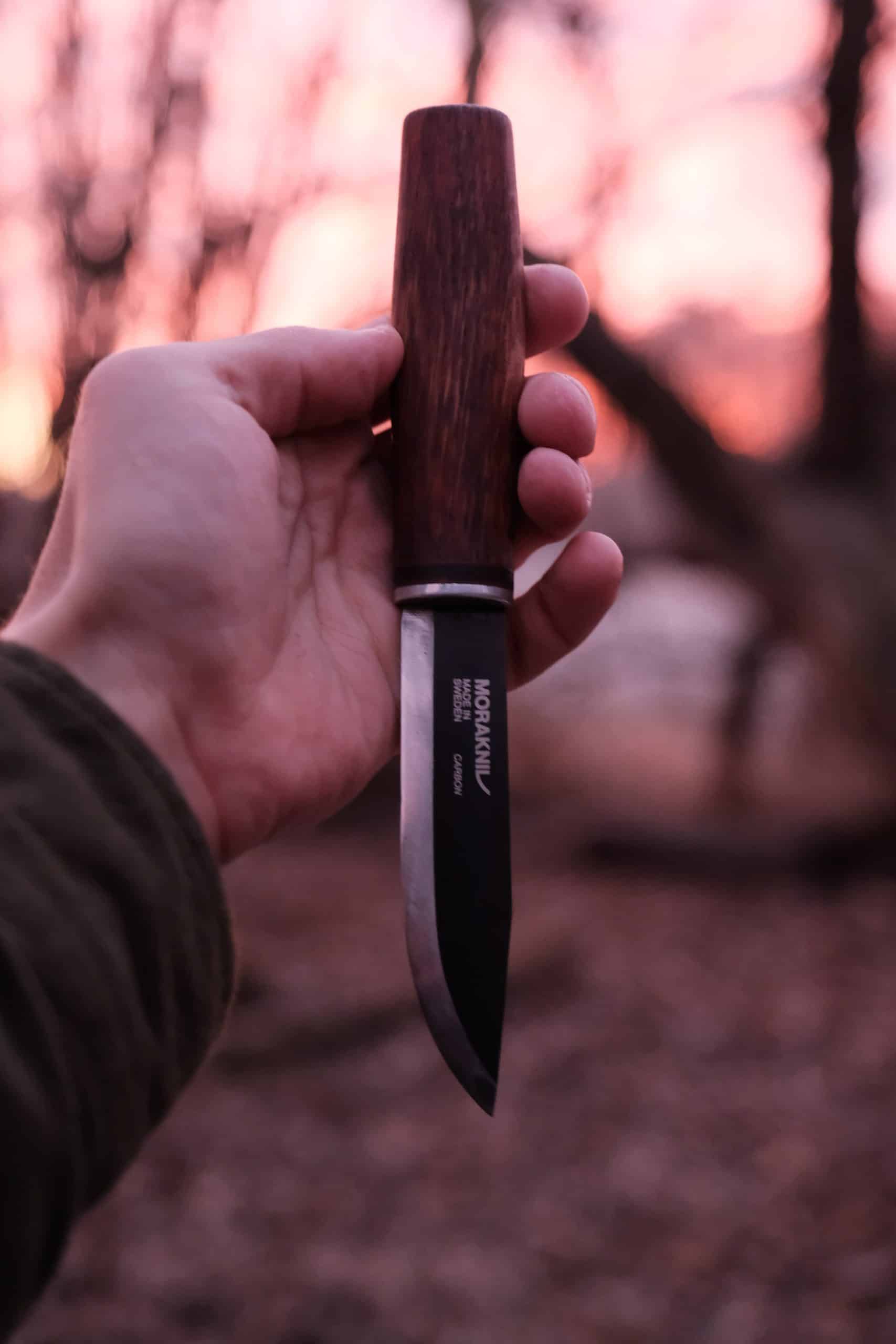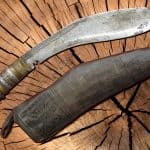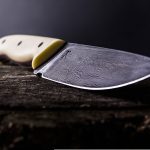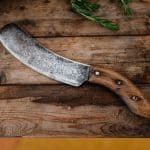
Introduction
Knife sharpening oil is a special type of lubricant that helps in the maintenance and care of knives. This oil keeps them lubricated, providing both a smooth honing process and a protective coating for the blades’ edges. It also increases their lifespan and prevents rusting, chipping, and cracking. When using knife sharpening tools such as whetstones or electric grinders, applying the correct amount of oil makes all the difference when it comes to achieving keen edges quickly and easily without damaging the blade. Knife sharpening oil must be replenished regularly to keep knives in pristine condition and helps reduce wear on more expensive implements.
Key Benefits of Using Knife Sharpening Oil
Knife sharpening oil is a widely used tool for maintaining sharp knives. By using the proper type of oil, you can help extend the life of your blades and protect them from damage due to corrosion, oxidation and wear. Here are some key benefits of using knife sharpening oil:
1. Reduces Friction & Wear: The use of knife sharpening oil helps reduce friction between the blade and whetstone or other material it is being sharpened with. This in turn reduces wear on both the blade and the whetstone itself, helping to maintain a longer lasting edge.
2. Dissipates Heat: Using a lubricant during the sharpening process helps dissipate heat which arises naturally when grinding metal against stone or another abrasive material. This helps prevent overheating which can weaken or damage a blade over time.
3. Prevents Rusting & Corrosion: By providing an additional layer of protection between a steel blade and water or air, knife sharpening oil can help prevent oxidation and rusting that can negatively affect the quality of a blade’s performance over time.
4. Improves Performance: Regularly using oil when honing or stropping your blades will help keep them in better condition for longer periods of time so that they perform better with each successive useage.
Different Types of Knife Sharpening Oil (Natural vs. Synthetic)
Knife sharpening oil is usually used as part of the knife sharpening process to protect and lubricate the knife blade. Different types of oil can be used for this purpose. Natural oils are usually derived from plant-based sources, such as plant or nut based oils, while synthetic oils are typically petroleum based or a combination of liquids too complex to determine their source. Both provide lubrication and protection but can create different levels of heat, friction, and messiness during the sharpening process.
Natural oils tend to be more expensive but tend to offer greater protection and more temperature resistance than synthetic compounds. They generally have fewer additives and offer better oxidation resistance due to their natural properties. Some popular choices include olive oil, flaxseed oil, coconut oil, walnut oil and mineral spirit-based cutting oils. On the other hand, synthetic versions offer less oxidation resistance but generally more heat resistance than natural alternatives; they also tend to be more cost-effective in larger quantities. Commonly chosen types include water-soluble cutting oils like GD27400 and BioLube Cut 0568N as well as alkylbenzene-based varieties like Acheson’s EP10-1200A.
Factors to Consider When Choosing Knife Sharpening Oil
When it comes to choosing the right type of knife sharpening oil, there are several factors you should consider. The most important factor is the type of steel and blade material that your knives are made of. Different materials need different types of oils for proper maintenance and sharpening. For instance, high-carbon steel will require an oil that has been specifically designed for that type of steel, while stainless steel blades will require either a mineral-based or vegetable-based oil.
In addition to considering the knife material, you should also take into account how often you plan to use the oil when sharpening. If you are going to be using it frequently, then you may want to opt for a higher quality option that can last longer. You may also wish to look at brands that offer non-toxic options as some mineral-based oils can be damaging to your skin if used too often.
Finally, depending on your environment and how frequently you sharpen your knives, it’s a good idea to get an oil with anti-corrosion properties. This will help ensure that the blade remains in good condition even after multiple rounds of sharpening or through large temperature changes. It’s also worth looking into brands that specialize in food safe oils as these won’t contaminate any food items afterwards.
How to Use Knife Sharpening Oil for Maximum Efficiency
Knife sharpening oil is a lubricant used for honing and sharpening knives. It helps reduce friction when honing and sharpening, making it easier and more effective. If you’re looking to get the most out of your knife sharpening process, using knife sharpening oil can help make it run smoother and last longer. Here are a few tips for getting the most out of knife sharpening oil:
1. Make sure you’re using the right type of oil for your particular task. Different types of oils are best suited to doing different tasks, so be sure to read labels carefully before purchasing one.
2. Apply the oil directly onto your stone or sheet with an eyedropper or brush before use. This will help keep the stone’s surface moist while allowing it to grab onto steel evenly while you sharpen or hone.
3. Apply just enough oil so that it coats the surface but doesn’t create too much slipperiness that could cause danger during your sharpening process.
4. Periodically add more as you go to ensure your stones stay lubricated without getting gunky from too much accumulation over time.
5. Change out your sharpening oil after heavy use for maximum efficiency in addition to keeping it fresh between uses – this especially applies to those who rely heavily on their knives and therefore need frequent maintenance from them!
Common Mistakes to Avoid with Knifes Sharpening Oil
1. Avoid using motor oil instead of knife sharpening oil – Motor oil may work to some degree, but it is not designed for use with knives and can damage the blade.
2. Avoid over-filling the oil stone with knife sharpening oil – Too much knife sharpening oil on the honing stone can clog up its pores, making it ineffective for sharpening your knife. Ensure that an appropriate amount of oil is used, just enough to keep the blade cool while you sharpen your knife.
3. Avoid using old or contaminated sharpening oil – The quality of a lubricant can degrade over time, so make sure you are using fresh and uncontaminated sharpening oil each time you sharpen a blade.
4. Avoid sticking the blade too deep in the stone when using the thin liquid slurry technique – When adding a thin layer of water and sharpening oil to the hone stone, place only a light layer of compound on the surface and create a slurry by moving strokes around in circles until light air bubbles form before starting to sharpen your knife. Doing this enables softer steel blades to last longer during honing processes .
5. Avoid over-sharpening blades with knife sharpening oils – The friction generated from repeatedly rubbing the blade against a hard surface when you sharpen will wear down any material over time; Apply less pressure as needed and periodically check if honing is still necessary or if you reached desired edge length already .
FAQ’s
Q1: What is knife sharpening oil?
A1: Knife sharpening oil is a special type of oil used during the knife sharpening process to help reduce friction and protect against corrosion. It lubricates the blade and prevents metal particles from clogging the abrasive material of a honing or sharpening stone, allowing for a smooth and effective sharpening process.
Q2: How do I apply it?
A2: Knife sharpening oil should be applied directly to the blade before each use of the honing stone or sharpener. To apply, put several drops onto the blade, then spread it evenly over the entire surface with your finger or a cloth. Be sure to clean any excess away with a soft cloth after applying so that the oil does not get stuck in between layers of steel in your knife’s construction.
Q3: Does it need to be replaced after every use?
A3: No; knife sharpening oil does not have to be replaced after every session. You can typically get multiple uses out of one application without needing additional oil unless debris accumulates on or around the stone or blade. Additionally, certain types are designed to last longer than others due to high viscosity and anti-corrosion properties.
Conclusion
Knife sharpening oil has many benefits for maintaining the sharpness and durability of a knife. It helps to protect against corrosion, wear, and tear. The lubricant also helps increase the effectiveness of the sharpening tool. With regular sharpening and use of knife sharpening oil, knives can last for years before needing to be replaced or re-sharpened. Furthermore, knife sharpening oils are available in a wide range of options with various thickness levels and compositions to best suit the user’s needs. Therefore, investing in quality knife sharpening oil is an effective way to protect and prolong the life of a knife.
















